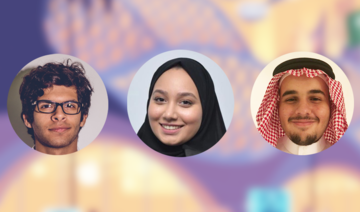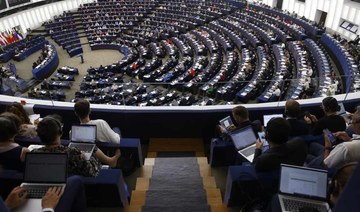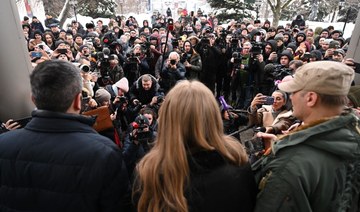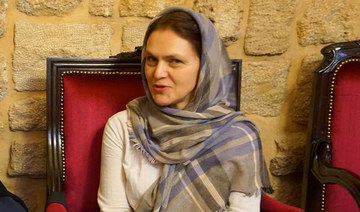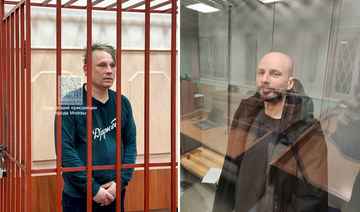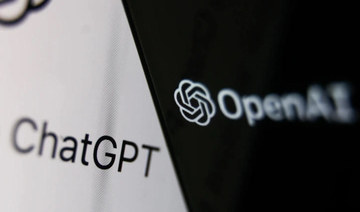JEDDAH: Impressionable children are susceptible to many forms of influence during their formative years, good and bad. During their teenage years, as they begin to grow more independent, they can be particularly vulnerable to the more negative forces.
For this reason it is important for parents, particularly in relatively conservative Muslim societies such as Saudi Arabia, to monitor their childrens’ lives and relationships so that any damaging effects can be spotted early.
In the modern world, however, this is not always easy.
Social media has become a prominent, perhaps dominant, way for teenagers to interact with other people and the wider world, and it can be hard for parents to keep tabs on who their children are following.
There are many types of internet influencers and celebrities in online communities covering a wide range of interests and industries.
Arguably the most influential of all are those who focus on fashion and beauty.
In a sector long obsessed with looks and the quest for physical perfection, appearance can be key to success in the crowded online world.
But appearances can be deceptive. In Saudi Arabia, like everywhere else, it is common for influencers to carefully manage and curate the image they present to the world.
This often includes manipulating photographs digitally to make themselves look as good as possible — sometimes to the point where they are almost unrecognizable from their normal selves.
This creates an extremely unrealistic view of looks and beauty, which adds to the pressure on teenagers who might worry that they cannot live up to this enhanced and distorted idea of physical perfection. In some cases this pressure can lead to physical and mental health problems.
“They all heavily edit their photos and they look perfect in all of them, but when you see them in real life they look nothing like that,” 17-year-old Celine Baroudi told Arab News.
Even though teenagers might be aware that influencers rarely look as good in real life as they do in the carefully chosen and edited photos on social media, they can still be negatively affected by exposure to the images of unrealistic, unachievable perfection.
“We know that they don’t look like that but I still see how beautiful they look and I always ask myself, ‘Why can’t I look like them? Why can’t I be beautiful like that?’” said Baroudi.
“I have an absolutely beautiful friend but she still wants to look like them (the influencers), so she’s stopped eating and works out until she’s lightheaded or faints. I went through a similar phase during Ramadan. It wasn’t good.”
Some might wonder why, if teenagers are aware that photos of influencers are often manipulated and not an accurate reflection of reality, do they not simply ignore the unrealistic standards.
According to Zeena Hashem, a specialist in adolescent psychotherapy from the Adult and Child Therapy Center in Jeddah, it is not that simple.
She highlighted the results of a national survey, carried out in 2017 by Oraynab Abu Abbas and Fadia Al-Buhairan, that focused on the mental well-being of teenagers in the Kingdom in the era of social media.
“They surveyed 12,121 adolescents in Saudi Arabia and they found that 60.4 percent of them were unsatisfied with their body images, and that resulted in them feeling sad or hopeless,” said Hashem.
The reason why young people cannot simply ignore the images presented by influencers, even when they know they have been digitally manipulated, is a phenomenon known in psychology as the G.I. Joe Fallacy, she explained.
This refers to a misguided notion that simply knowing about a bias is enough to overcome it. The name is derived from the 1980s animated US TV show G.I. Joe, every episode of which included a public service announcement and the closing comment: “Now you know. And knowing is half the battle.”
“Your brain’s awareness of reality does not mean it accepts it,” said Hashem.
“So, even though adolescents know that these influencers are adding filters or photoshopping their photos, they still can’t help but feel insecure.” She added that brain development during the teenage years also plays a part in how young people respond to misleading images.
“The white matter connections (responsible for carrying nerve impulses between neurons) and the synapses (the point of communication between two neighboring neurons) in their brains are increasing,” said Hashem.
“This greatly impacts their behavioral control because they are still in a learning and sensitive stage.
“Psychologically, however, since they are slowly becoming adults, they want to find themselves and separate themselves from their parents, so they go looking for any form of influence outside of the house — and figures on social media are the most accessible.”
Hashem strongly suggests that parents educate their children to help prepare them psychologically for the deceptive nature of the Internet and prevent any harmful effects on their mental well-being.
Noha Ali said that she struggles with how she perceives her body because she compares herself with the influencers she follows.
“I know none of it is real,” said the 19-year-old.
“But for some reason every time I see their photos I still want to look like them. It has affected me subconsciously; I find myself wondering why I can’t look like them and I end up feeling upset.”
Lara Kokandy, 16, said: “They’re setting unrealistic body standards. And I say unrealistic because they photoshop their bodies without realizing how they’re impacting their young followers. A lot of my friends and I sometimes feel sad because of it.”
Such feelings are common. Therapist Alia Mustafa, who specializes in art therapy for children, said that body dissatisfaction among teens can cause many problems.
“Nowadays, teenagers have become an image-obsessed generation who are constantly following ‘perfect’ influencers,” she said.
“Having these thoughts can lead to many other potential disorders: bulimia nervosa, anorexia nervosa, as well as body dysmorphic disorder.”
It is not only the physical appearance of influencers that can affect the mental well-being of adolescents, she added, but also the lavish lifestyles they embody and promote. For example, one adolescent patient’s desire to emulate the lifestyle a particular influencer contributed to depression.
“Every session, my client would discuss with me all the news she had read about an influencer who she and her friends are obsessed with, and how they want her life,” Mustafa said.
“During one of our sessions, she mentioned how she was angry at her parents for not providing her with the same lifestyle. This added to her depression; she was constantly putting herself down for not living like her idol. Teenagers look up to influencers and this leads to them wanting to imitate their lifestyles.”
Lojain Ahmed makes no secret of her desire to live like the influencers she follows.
“I look at some influencers’ lavish lifestyles,” the 17-year-old said.
“It’s weird to see them traveling all over the world and buying everything — especially influencers my age.
“It makes me look at my own life and what I don’t have or what I’m not doing, and why I can’t have what they have or do what they’re doing.”
But like most things in life, there are positive and negative sides to the Internet and social media, and in the case of influencers it is important to remember that seeing is not always believing.





